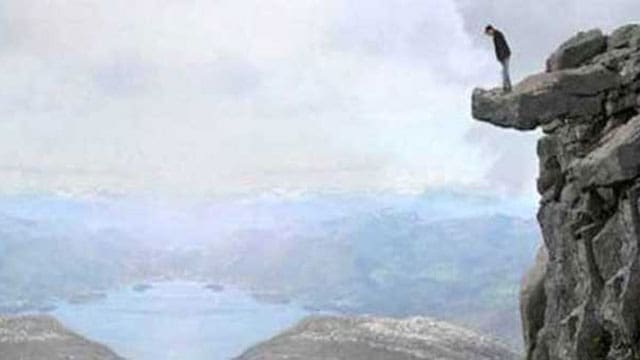Canadian economy now more primitive than that of Bulgaria, Serbia or Panama
 Vaclav Smil contends he’s simply being a realist when he describes Canada’s current state as one in an ever-accelerating decline – including a likely fall from the G20.
Vaclav Smil contends he’s simply being a realist when he describes Canada’s current state as one in an ever-accelerating decline – including a likely fall from the G20.
When one of the world’s leading energy thinkers “assigns” you some homework, you tend to take it seriously. Like when he sends along a massive PowerPoint deck densely packed with facts and figures and challenges you to ferret out anything not based on the facts of the matter in a complex melding of energy and economic dynamics.
I tried to assail his facts and find cracks and crevices in the slide deck he shared with me. And I couldn’t. Nor could the dozens and dozens – and dozens – of other fellows he agreed I could share it with. He wants Canadians to know the truth of their circumstances.
Cast in a global context, according to Smil, Canada is a mess. Its energy systems and its economy are stressed and distressed.
 |
| Related Stories |
| The Biden administration’s disconcerting bias against Canadian oil
|
| Trudeau’s carbon tax crusade a war on Canada’s poorest
|
| A proposal for the future of the petroleum industry
|
And because there’s a current affairs sense to all of this, I am curious as to what Dr. Smil might think about the Alberta and federal governments and their proposed joint working group. The working group is intended, at least notionally, to lay the groundwork over the next several months for a collaborative approach to future energy efforts. Both governments have a desire to do better by the world in terms of energy – although the aspirational landmarks of both are north and south poles apart.
Put bluntly, Canadian energy affairs are rife with what borders on dishonesty at both fringes of our lamentably stretchy political spectrum. No politician on the left or right is being clear and candid with Canadians about what the federal energy future should look and feel like.
Smil’s honest prophesizing spells out the preconditions required to meet the “the world needs more Canada” cri de coeur. As a nation, we’re nowhere near to achieving them. And the delta between our lofty aspirations and Smil’s hard-core realism is enormous.
Canada is in a state of energy and economic dishevelment. Fringe and ideologically driven politics have brought it to a ruinous state. Its travails are far more deep-rooted than just a plaintive hydrocarbon hue and cry. The entire economic system – with all things energy at its core – is in a state of civic catatonia.
No one is calling foul on the disastrous state of affairs with the clarity (and honesty) of Smil.
Intuitively – as a Canadian – you want Smil to be wrong. But that’s in your heart. In your head, you know the master of all empiricists is fundamentally correct.
In many ways, he is that brutally Honest Prophet candidly revealing what he sees in our future while also shedding light on the past events that have led us to this point.
Canada is in decline. And the slide down the slippery slope of descent into the abyss of mediocrity is exponentially pushing us to be a “nation non grata” – my words, not his.
For Smil, the notion of “energy” in all its shapes and forms is central to civilization’s past, present and future socioeconomic and technological being. Canada’s “steady” and “steep” decline links directly, argues Smil, to an egregious government mishandling of the energy and economy file. Rather than outranking all affluent countries as it should be, Canada finds itself in the global gutter on many ranking systems.
Direct from Smil’s slide deck:
Canada’s decline has many causes, beginning with consistently poor governance; both federal and provincial governments have implemented a series of indefensible policies over the past several decades.
They include:
- preventing the development of the country’s energy resources
- deliberate deindustrialization
- reliance on irrational imports
- wasteful spending, endless deficits
For a country that is one of the world’s leading energy producers, Smil believes Canada is “not a smart energy user … and a pitiful energy exporter.”
Smil’s view of energy stems from his expertise as one of the world’s foremost academic interdisciplinarians: he views energy systems as interconnected and complementary. He notes the broad range of “missed opportunities” in terms of exports and derides Canada’s ongoing imports of foreign oil on eastern shores.
Tongue firmly in cheek, he describes those foreign imports as “a truly amazing case of nation building …”
But Smil is not just a one-trick petroleum pony: his views cut across all layers of the energy system of systems. He’s equally critical of Canada’s failure to maximize its hydroelectric and nuclear energy competencies. And he roots all this in a complex morass of flawed economic and political decision-making.
And so, he might shrug at the idea of Ottawa and Edmonton attempting to map out an energy strategy as an exercise in futility because it does nothing to acknowledge how it will inevitably get mired in the muck he describes in his slide deck. And how meaningless it will be as an attempt to gather the world’s attention.
I tend to think of Honest Prophecy in a secular context – even though the notion and its fallibility has its root in major world religions. In that sense, it’s intriguing that Smil’s PowerPoint deck has on its second page lines from Job.
He makes nations rise and then fall, builds up some and abandons others. He robs leaders of their reason, and sends them off into no-man’s-land. (Job 12:23)
I will leave it to you to divine the meaning and prophecy Smil intends.
However you choose to make meaning around it, Smil wants Canadians to realize “… their country is now more economically primitive than Bulgaria, Serbia or Panama … and that if this trend continues, by 2030 we will be below Russia, Kyrgyzstan and Eswatini, with all that implies for the quality of life and for social stability.”
Bill Whitelaw is the Managing Director of Strategy & Sustainability with Geologic Systems.
For interview requests, click here.
The opinions expressed by our columnists and contributors are theirs alone and do not inherently or expressly reflect the views of our publication.
© Troy Media
Troy Media is an editorial content provider to media outlets and its own hosted community news outlets across Canada.

